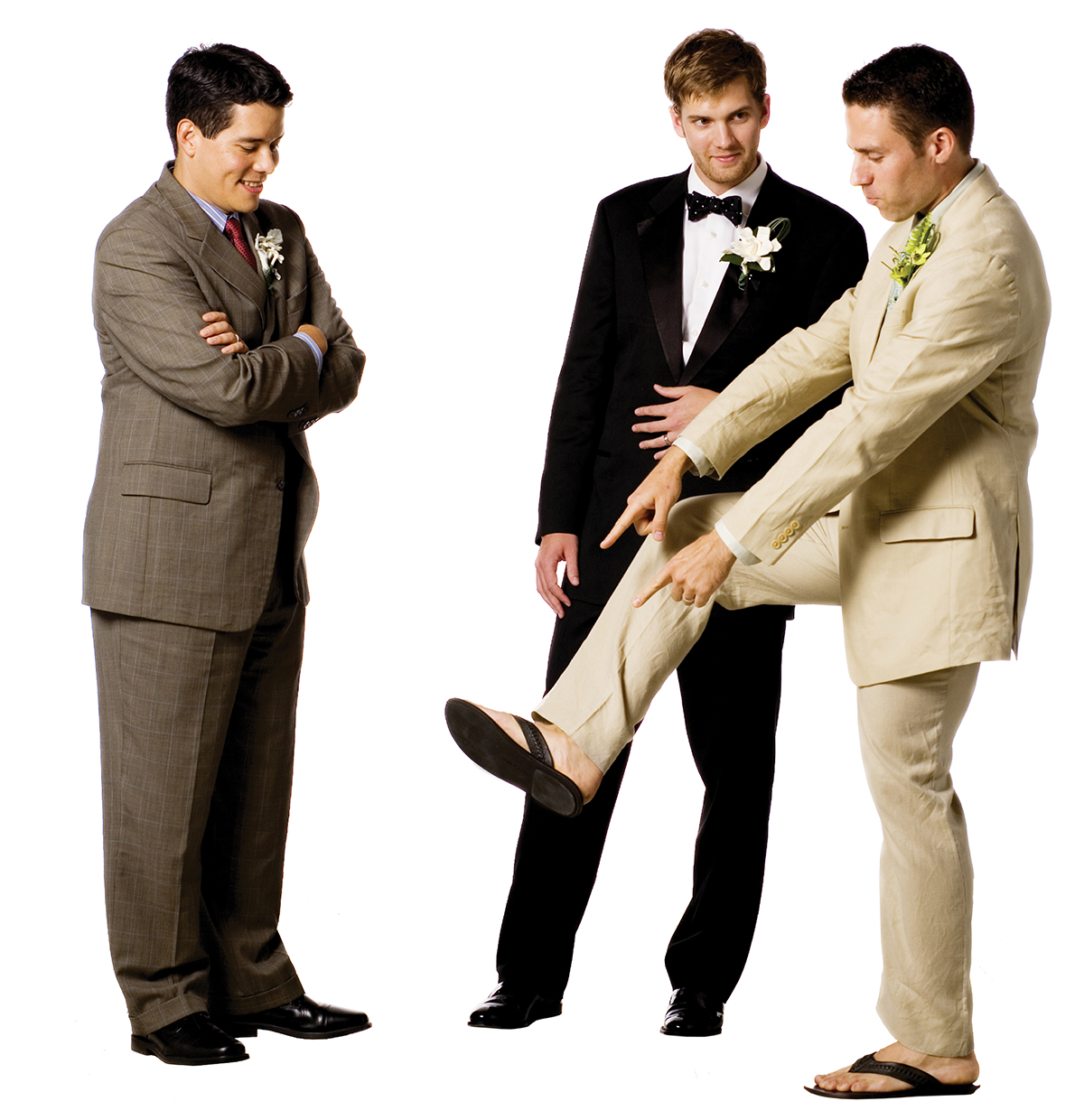Ask The Experts: The Properly Groomed

(From left) recent grooms Jonathan Abe, Drew Watson, and Chad Meigs learned when to help out with (and when to stay out of the way of) planning the big day; Photograph by JÖrg Meyer.
Weddings may be all about the fairer sex, but behind the silk, lace, and flowers is a man dealing with his own big-day jitters (and heaven forbid he disrupt the planner-bride bond). A trio of newly minted husbands—Jonathan Abe of Somerville, Drew Watson of Boston, and Chad Meigs of Medford—reveals how grooms can get through the stressful lead-up to the main event.
Rate your planning involvement on a scale of 1 to 10 (1=you showed up to the wedding; 10=you planned it yourself).
CM: Originally I had imagined I’d be more involved. But really I functioned more or less as a consultant, so I’d say I was a 4.
DW: I had no predetermined idea of what my role would be, but I’d give myself a 7 or 8.
JA: I was a 3. I helped with much of the manual labor; my wife served as the project manager.
Was it hard to agree on a type of wedding?
DW: My wife’s an interior designer, so she had a look she was going for. I wanted whatever she wanted.
CM: We got married on a 50-acre property in upstate New York, where my wife grew up, so we didn’t have to worry about the venue. We compromised on the music: jazz during the cocktail hour (her) and reggae during dinner (me).
JA: We both imagined a more relaxed and informal setting. She came up with the idea of having guests wear Hawaiian shirts (she’s from Hawaii), and the groomsmen wore flip-flops.
What part was most stressful?
JA: Around the time we started planning, I got a new job and was working long hours. The weather was also a major source of stress. We chose March because it was a little cheaper, but it snowed a foot and a half the Monday before the wedding.
DW: I questioned whether we really needed to spend thousands on lighting and chairs and linen rentals. I also questioned the huge dessert table she wanted. Why not just a wedding cake? But the guests loved all of it and, in the end, it was money well spent.
CM: It was a lot more work than I’d anticipated. So much goes into it, and everyone wanted to chime in.
What tasks can grooms easily take on?
CM: I researched the hotels and bed and breakfasts in town, then hired one big bus to shuttle guests back and forth.
DW: My wife chose the main band, but I found a jazz trio from Berklee. I also worked with the priest to help create the ceremony.
JA: I took the lead on transportation, music, and the honeymoon. We both wanted to go to Hawaii, so I ran a few hotels by her and then booked everything.
How did you keep sane during the planning stage?
DW: We kept a nauseatingly detailed spreadsheet, to the point of, “Get a haircut on this date.” But when things get rolling, it gets so crazy that you’d forget to brush your teeth without it.
What advice do you have for brides?
DW: Don’t get so hung up on the details. I saw more invitations than I had to, and my response was always the same: “It looks great, honey.” In fact, your wedding goes by so fast that you don’t even have time to eat. All those little decisions come out in the wash.
How about some more tips for future grooms?
CM: If you’re passionate about something, plant the seed early. I really wanted to wear flip-flops, so that was the first thing I requested.
DW: Have an opinion about everything, even if you don’t feel strongly about each decision.
JA: Don’t wait to set a date. We had a long engagement because we weren’t sure what we wanted to do or when. Sadly, both of our fathers passed away the summer before the wedding.
Any regrets?
JA: I’m a horrible dancer and I don’t know if practice would have helped, but lessons are something to consider so you can put on a decent show.